A look at Catraeth
Viewing Catraeth through a different lens.
The famed Battle of Catraeth, the subject of the earliest work of poetry in Old Welsh, Y Gododdin, was a disastrous battle for the titular heroes of the northern kingdom of Gododdin centered on Din Eidyn, modern Edinburgh. There is much division of the dating of the poem however.
While most accept that the Battle of Catraeth is historical, many do not accept the traditionally held view of the date Y Gododdin was composed. Most early estimates, viewing it as a genuine work of the 6th and 7th century poet Aneirin place it around 600ad. This view has met with skepticism, and many have placed a later date of the 9th, 10th or even as late as the 11th century. There is some basis for this, but one must consider that oral versions of the poem may have existed long before written, and as such were slowly 'modernised'
One point of note here is that while many later poems were produced as 'forgeries' there is often a bias, or intent behind them, bolstering claims to land, titles, or legitimacy, even being used by Bards to garner favor from men in power. Y Gododdin shows little of this intent, eulogising many figures whose descent and importance were likely lost to history by the time the poem was first written down. Very few figures within are directly identifiable now, and it would seem when being written down in the 13th century they were still relatively unidentifiable figures. There are a few standout mentions within the poem however, and you can find information on them in the article below.
This gives us the very real possibility that Y Gododdin, or at least the core that the copyists creating the manuscript that it came down to us from, genuinely represents the work of Aneirin. This view is bolstered by John Koch's work, which I recommend. If Y Gododdin represents a genuine 6th or 7th century work, can we further dial in a date for the battle itself? It was apparently written in Din Eidyn, which fell to the Angles in 638, so the battle at least must have taken place before that.
Many figures associated with the battle in other poetry such as Gwallog of Elmet are solidly situated in the mid to late 6th century, giving us some possibility that the battle was fought a little earlier than 600. Gwallog specifically would’ve been quite elderly at the battle, being the son of Llennog (Llenneac) of Elmet, who was a brother of Arthwys ap Mar, the Northern Arthur. Llenneac would have been born sometime around 470-480, and even assuming that Llenneac was at the end of his Floruit when Gwallog was born this would give him a birth around 520-530. For a 600ad battle this would mean either Gwallog was added to the battle to bolster fame, or was between 70 and 80 at the time, not impossibly but straining likelihood.
The aforementioned John Koch believes there is enough evidence to say that another poem, Gweith Gwen Ystrat, a poem praising Urien as the victor of a battle leading the men of Catraeth, and Y Gododdin are depicting the same battle.
"The men of Catraeth arise with the day
around a battle-victorious, cattle-rich sovereign
this is Uryen by name, the most senior leader."
This then paints an interesting picture of new potential for Catraeth, not of the cut and dry Celtic vs Germanic battle, but instead a battle fought between rival Brythonic kings. Koch potentially places the battle as early as 570, but I think slightly later at 580 makes more sense. This brings Gwallog to a more reasonable 60 years old, possibly even 50, and Urien himself to around the same age. The poem Gweith Gwen Ystrat even called Urien “a Grey-haired lord”.
“At the ford I saw men stained with blood
Down arms before a grey-haired lord”
Interestingly of the few readily identifiable figures within Y Gododdin man would seem to be descendants of Coel Hen. This is strange considering that Urien, the likely leader of the Gododdin's enemies that day was a Coeling himself. What is painted is here not a mere battle between rival kings after all, but a civil war among kin that had until recently been united.
To fully envision this scenario we must go back to 537, Camlann, and the likely death of the Northern Arthur, Arthwys ap Mar. After this fateful battle, which Catraeth in many ways echoes, Arthwys' kingdom and seemingly High Kingship of the North passes to his son Ellifer. Eliffer maintains the hold his father had on the Angles of Deira and Bernicia, with his Gosgorddfawr, or 'Great Host' or 'Mighty Warband' as well as the help of his brothers, Cynfelyn of Calchfynydd, Ceidio of Caer Wenddoleu, and his cousins, Gwallog of Elmet, and Urien of Rheged
Peredur, one of Eliffer's sons and the historical inspiration for the figure of Percival, traditionally is held to have lost his father at an early age, and this seems to have held true, with Ellifer likely dying before 547, the year Ida of Bernicia established himself as king. With Eliffer gone the Angles began gaining in strength, and it seems that it was during this time that Urien rose to prominence amongst his contemporaries. Urien is called the “Lord of Catraeth”, Catraeth was within territory not traditionally considered Rheged's.
This seems to lead to the potential that during Peredur and Gwrgi ap Eliffer's youth that Urien in fact either took territory that was considered theirs, or was acting as a regent or regional High-King on their behalf. Urien ‘the Gold King of the North’ was in a fairly powerful position, with Rheged seemingly coming primarily to prominence in his rule. Rising to fill the vacuum left from Eliffer’s death, and becoming ‘Lord of Catraeth’ seeds were being sown of a nigh apocalyptic battle.
Peredur and Gwrgi become kings of Ebrauc at least by 573, when they made war on their cousins Gwenddoleu ap Ceidio, and Myrddin ap Madog in the Battle of Arfderydd. Gwenddoleu was considered a 'powerful prince', and is remembered as an owner of one of the famed 13 Treasures of Britain, a magic Gwyddbwyll made of gold, with men made of Silver. If the pieces were set, the game would play itself. Gwenddoleu’s kingdom of Caer Wenddoleu was a small kingdom centered around Carwinley, separating the Coeling kingdoms of the south from Alt Clut and Gododdin, probably set up by his grandfather Arthwys ap Mar during his reign.
Arfderydd has multiple motivations attached within legend, with one holding that it was fought over a disagreement over a Lark’s nest by Aedan mac Gabran of Dal Riata and Rhydderch Hael of Alt Clut. Aedan sought refuge with Gwenddoleu, and the battle ensued when Peredur, Gwrgi, and Dunod Bwr joined Rhydderch to settle things. Others have drawn the conclusion that this was a final gasp of Brythonic Paganism, represented by Gwenddoleu and Myrddin’s forces, against the Christian kingdoms of Ebrauc and Alt Clut.
Taking a serious look at Arfderydd from the point of view of two disaffected princes of Ebrauc, this conflict reads as one of jealousy, fighting for preeminence amongst their family reaching for the glory of their father and grandfather's high kingships. You could even infer it was an attempt to take territory close to Rheged, while not taking on Urien directly. Urien himself is curiously absent from any account of Arfderydd, though ultimately he seems to have been the king to benefit the most, absorbing territory from Caer Wenddoleu in the wake of the battle.
Peredur and Gwrgi are then noted again in the Annales Cambriae, in 580, dying at Caer Greu. Caer Greu is likely a poetic name possibly meaning Fort of Blood, and they were said to have been abandoned by their warband there to die. Could it be that this is Catraeth? A contemporary Peredur is eulogised in Y Gododdin, and Gwrgi under his birth name Owain may even feature. Gwallog as mentioned before is said to have been at Catraeth, and seemingly on Urien’s side. Interestingly there is a warrior named Madog Elfed1, Elfed here likely referring to Elmet, Gwallog’s kingdom. This Madog could possibly be rogue nobility from Elmet, defecting against Gwallog his king, or even a son, otherwise unmentioned elsewhere. Madog fights on the side of the Gododdin, further muddying the waters.
A picture here emerges. A contigent of the Coeling unsatisfied with their lot, led by Perdur and Gwrgi entreat with the king of the Gododdin (possibly the Mynyddog named in the poem, possibly Clydno Eidyn) and lead an attack on Urien, who has been acting as high-king of the north from Catraeth. Urien like many of his forbears used the nearby Angles as a mercenary supplement to his army, and allied with Gwallog of Elmet (who later assists him against the Angles of Bernicia) defeats this combined host of their kin and the men of Gododdin.
Catraeth sparks the end of the Brythonic Heroic Age. The fractured old North never recovers, and the descendants of Coel begin to lose their grip on the Old North, with their kingdoms being absorbed by the Angles one by one, paving the way for Alt Clut to become the last Brythonic power in the North.



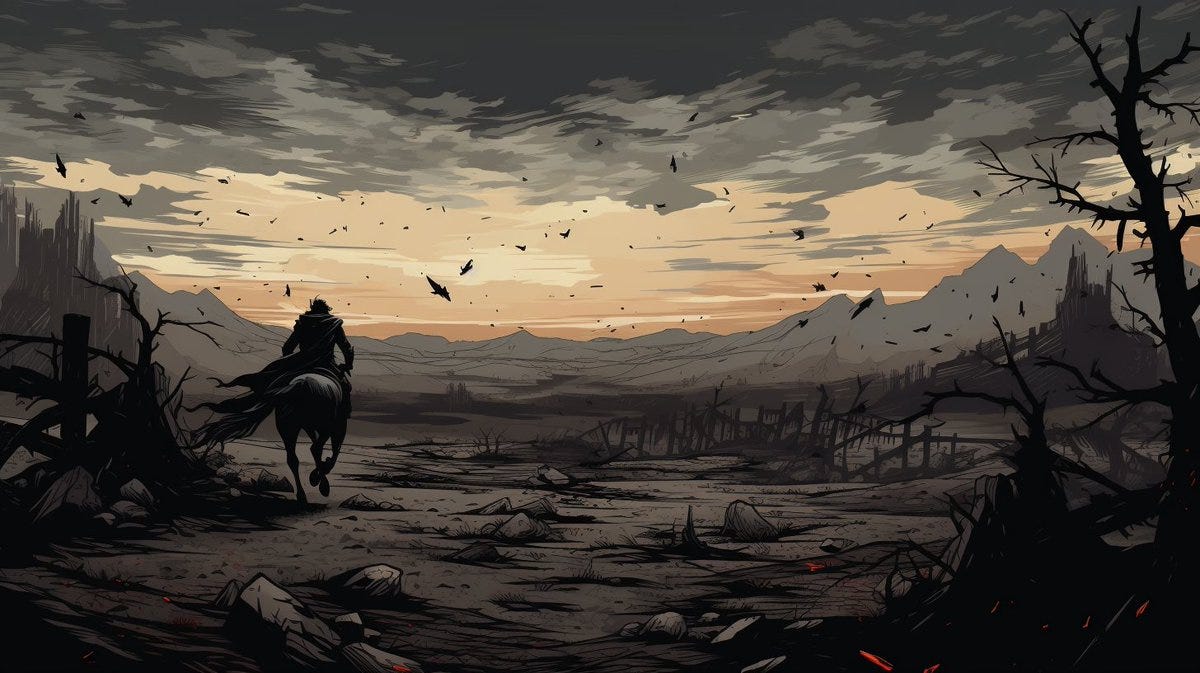
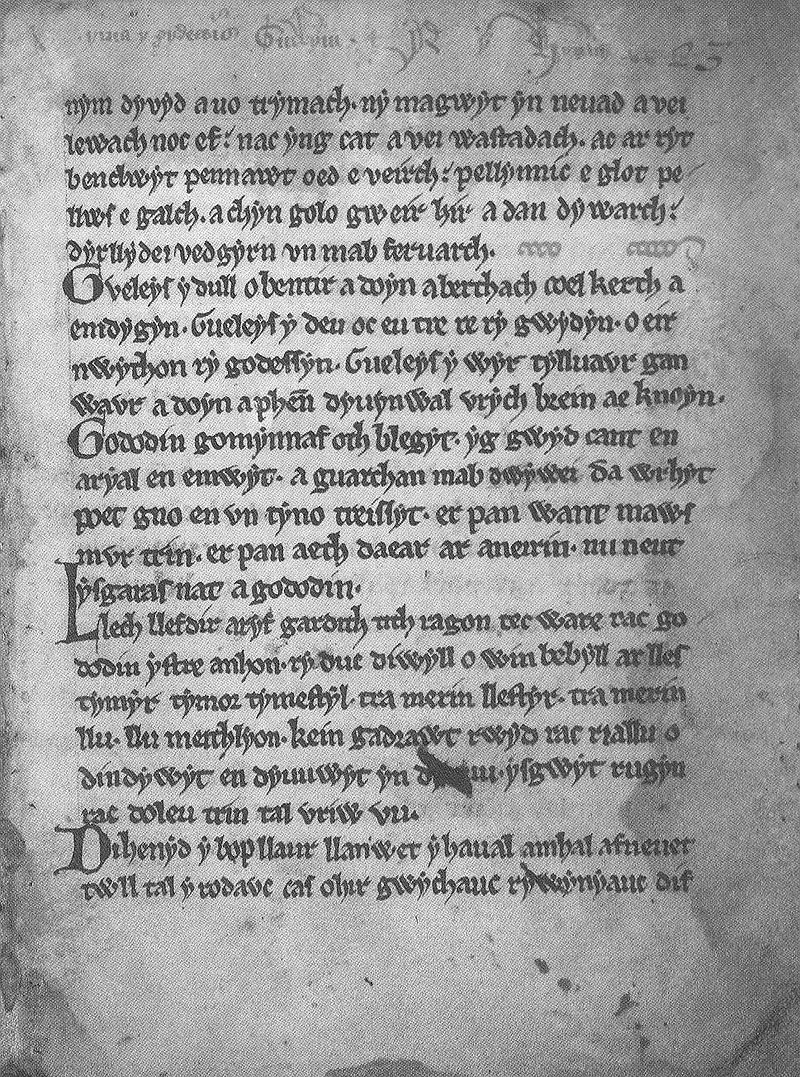

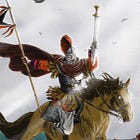
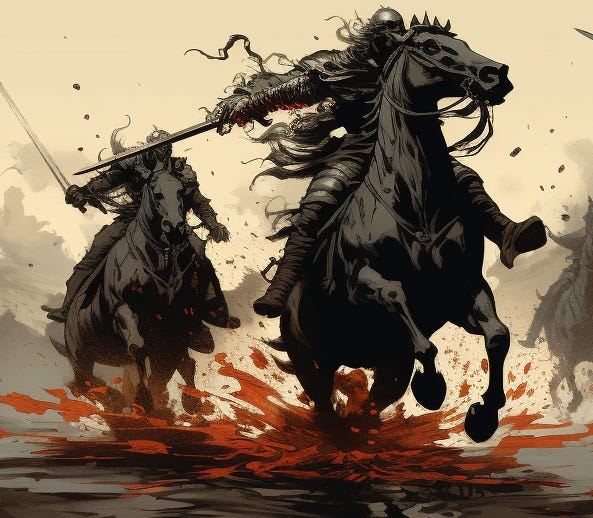

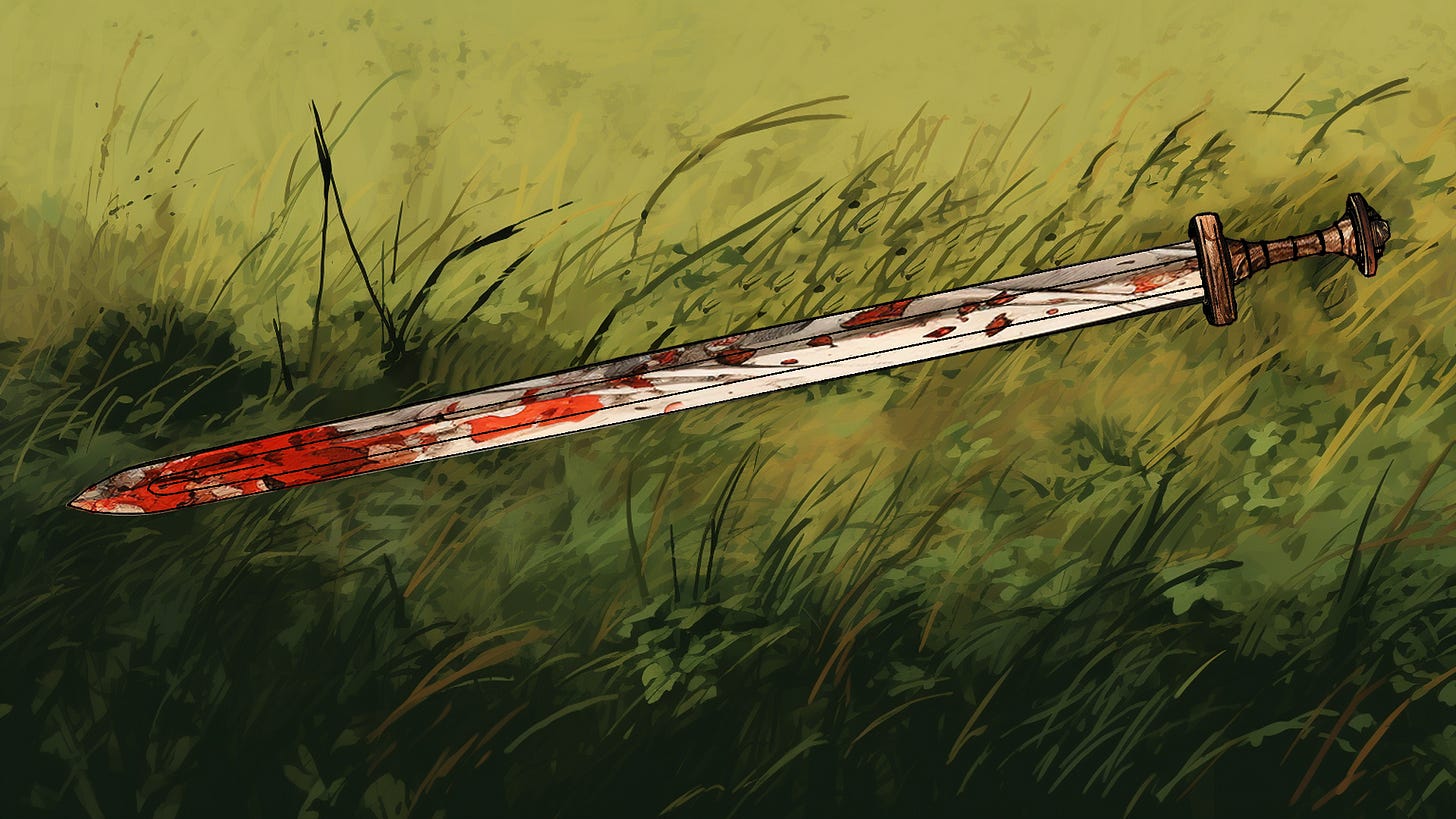

You have a real flair for telling of historical events without it being boring. You did a great job.
Brilliant, Aurochs!